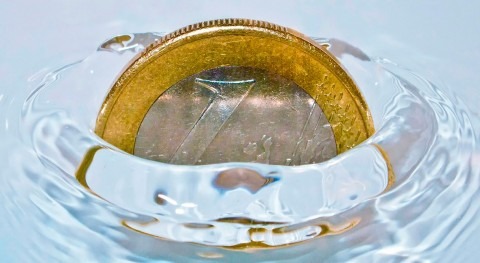Driven by human activity, climate change is unleashing extreme weather and climate events all over the world. Even the casual observer notices more and more extreme events such as heatwaves, heavy rainfall and floods, droughts, and tropical cyclones. Atmospheric CO2 concentrations in 2019 were the highest for the last 2 million years, and the global surface temperature has risen faster since 1970 than in any other 50-year period on record. Between 2011 and 2020, the annual mean sea ice area in the Arctic reached its lowest level since at least 1850, and the global retreat of glaciers since the 1950s is unprecedented in at least the last 2,000 years. In turn, this entails rising sea levels and warmer oceans worldwide (1).
The recent heatwaves in Greece and western areas of North America and floods in Germany and China show that human activity affects the environment. Many of its consequences are irreversible, but scientists still insist that catastrophe can be averted if the world acts quickly and in unison.
The UN Intergovernmental Panel assesses the situation on Climate Change (IPCC) in its latest report. The report states that, in all emission scenarios considered by scientists, the goal of keeping the rise of the global temperature below 2°C this century and persisting with efforts to keep it below 1.5ºC will not be met unless there is a massive cut in carbon dioxide emissions.

That is the context in which we find ourselves. Meeting these goals is difficult but not impossible. Working together, government leaders, private companies, and citizens can reduce greenhouse gases and stabilise the rising temperatures.
The water sector, notably the International Desalination Association (IDA), is a valuable ally of the United Nations and the fight against climate change. Its leaders, experts, and professionals share the best ideas for dealing with the impact of climate change on the world’s water systems. In addition to being essential to life itself, water is a critical resource to face the challenges posed by climate change.
Working together, government leaders, private companies, and citizens can reduce greenhouse gases and stabilise the rising temperatures
Creating new water sources through desalination and reuse is a natural and viable alternative for conserving scarce water resources and thus protecting the environment. Many multilateral organisations in the field agree that non-conventional water sources can provide high-quality drinking water for domestic, industrial, and agricultural use, thus enabling economic and social development to avoid water scarcity.
Projects already in the production phase prove that the current cost of desalinated water now makes this technology an attractive and viable long-term option and a necessity, especially in countries that suffer from water scarcity. The low price of desalinated water in plants such as the Yanbu 4 IWP with a rate of $0.47/m³, Shuqaiq 4 at $0.32/m³, or Soreq 2 at $0.405/m³ prove the viability of the projects to produce high-quality water in sufficient quantities to meet the needs of governments and companies.

Reuse is another field with a high projected growth rate due to even lower costs and immediate availability, in addition to the beneficial effects of removing untreated water and its associated greenhouse gas emissions from the atmosphere. Reuse will continue to increase in countries like China, where it is one of the top priorities in the government’s environmental policy. In the United States, states such as Florida and California have harnessed the benefits of reuse to diversify their water supplies; this approach is growing in other locations such as Texas and Arizona. Few have pioneered the large-scale implementation of the technology, but some have now achieved reuse rates of 90% on their conventional water supply. The trend is gathering momentum, but it is still not enough.
The water sector, notably the International Desalination Association (IDA), is a valuable ally of the United Nations and the fight against climate change
While substantial progress has been made with non-conventional technologies, the UN Sustainable Development Goal 6 – to ensure access to water and sanitation for all by 2030 – is not progressing at the expected pace. Numerous bottlenecks are preventing better progress. Political and institutional fragmentation between levels, players, and sectors means that the decisions made in one sector (for example, agriculture, energy, healthcare, or environmental protection) often fail to account for the impact their measures have on the availability and quality of water in other sectors. The resulting shortage of funding slows down and prevents essential projects from being carried out. At the same time, data and information are often not available or not shared between sectors to enable effective decision-making. We must not forget that if progress is lacking on SDG 6 (access to water), practically all the rest of the SDGs, from eradicating poverty to ensuring food security through education for all and protecting the environment, are condemned to failure.
Faced with this challenging but hopeful scenario, all stakeholders must continue working and supporting initiatives that help to combat climate change and improve the world’s water systems. Here at IDA, we send out a message of support to the entire sector and ensure our fellow players move forward to promote and drive innovation in both technology and policies to achieve a more sustainable and resilient planet.
- IPCC | Climate Change 2021: The Physical Science Basis





